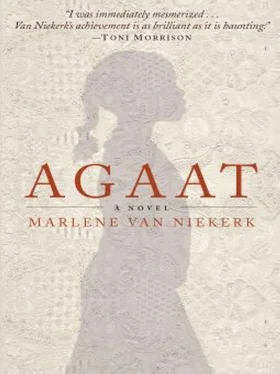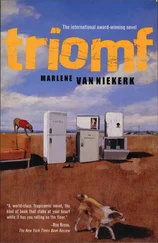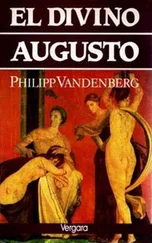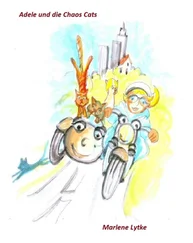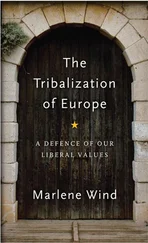How about something special for the two old sweet-tooths on a sunny Sunday morning, you called airily from the pantry, and added even more airily.
So what do you say, Agaat? Do you feel up to it?
With a scraping sound you dragged the stepladder across the pantry floor and mounted its creaking rungs. You had to gain a bit of time to consider what your next move would be, perhaps a suggestion to go outside, to view the area under consideration, to asses the old garden as it was? That might bring some relief to the atmosphere, a displacement away from the square table-top where you were trapped together, something to break through the tension of the presentation and approval.
But the tension was even more palpable there where you were standing four shelves high on a rickety stepladder facing several seasons’ jars of preserved fruit, chutneys, jams, syrups and pickles.
Suddenly the thought occurred to you to fall off the ladder. That would be an instant solution. All balances would be restored in the wink of an eye. You would be paralysed with shock and pain and Agaat would jump to help and attend to you, and then you’d be able to exploit the situation of badly sprained employer to get her where you wanted her.
Where exactly you wanted Agaat, was what you asked yourself while you read the labels.
Albertas (old orchard) thick syrup 1970, Clingstone (old orchard) in brandy syrup 1971, Quince jelly 1973, Prickly-pear syrup 1975, Fine apricot 1980, Whole-fruit apricot and peach pickle (curried) 1981, Peach pickle (chilli) 1981.
Every preserving-jar in front of you on the shelf Agaat had handled, the picking, the peeling, the slicing, the boiling, the bottling, the labels were all in her upright handwriting.
Wholefruit kumquat jam (front orchard) 1972, Lemon marmalade 1972, Bitter orange marmalade, Wild watermelon (Gdrift, dryland), Sourfig cinnamon-sugar syrup (Witsand dunes), Green-fig (Pink fig tree) 10 October 1980.
You felt dizzy. For a moment the fall was a definite possibility. You supported yourself against the shelf.
Then you saw Agaat beneath you, head buried in one of the garden books that you’d set out on the table, the strong hand firmly clamped around one leg of the ladder.
Are you managing here? she asked. I see here they also talk of colour schemes.
The tone was sticky with sanctimoniousness. You were recalled from the faint to sudden fury. You could sweep off the whole shelf of bottles with your arm onto her head. She wouldn’t even know what hit her. A cluster bomb of preserves.
Jakkie phoned yesterday, she began, her voice low.
He says they called him on the carpet to ask who this Agaat-person is and why her letters arrived sometimes open, sometimes gummed shut. They’re scared of sabotage, he says, but he doesn’t understand it, because it’s mainly the other side’s people who are sent letter-bombs, he’s scared his superiors will think he’s turned wrong or something and it’s the secret police who want to eliminate him. He says he’s had it with war. He says he has nightmares.
That’s how your garden began.
After her deposition Agaat took the garden books to the outside room and made her own study of them. You kept thinking of the letter. Would she have seen it, you wondered? Would she have looked in your bag? When she went to take out the new pills from the chemist? You tried to remember when you’d eventually gone to post it, tried in vain to recollect licking and resealing it.
In the evenings after supper when Jak had gone to the stoep, Agaat would come and sit with you at the dining room table and make recommendations and see to it that you planned it all in the finest detail until your eyes were ready to fall shut. Then she made strong coffee which in turn kept you from sleep.
Take an extra Valium she’d say if you complained.
She persuaded Dawid to help you with the big things.
Jak stood on the sidelines, now and again when you weren’t looking, lent a hand when Dawid asked him.
You had a strong pump installed at the dam and on Agaat’s recommendation had a reservoir built for the summer on the rise behind the house. She saw a small bulldozer and scraper at Barlows in town and you hired it to construct the terraces.
Of compost material there was enough. You had big heaps made up from manure and straw from the stables. Agaat pushed a length of steel wire into each one and went and felt it every morning. It mustn’t be too hot, otherwise it kills the microbes, she learnt from her book.
She reckoned that the farm hotnots, as she called them, were too idle and too few for the garden work and at her insistence you got a team of convicts from town to dig trenches, stack stone walls and dig out the flowerbeds three feet deep to improve the soil texture with additions of compost.
Agaat cooked great pots of rice and pork for the convicts and kept them lively with jugs of sweet Frisco every three hours. With a short quirt she walked to and fro behind the lines with the guard to see that there was no idling.
When it’s spring again , she taught them, and the second and third voices of the refrain, day in, day out.
She had more or less burnt herself out by the time you were ready to go to Starke Ayres in Grabouw to buy seed and bulbs and trees and shrubs.
Those were your best times together, those excursions, those long hours in fragrant nurseries with your reference books and looking at the exotic flowering-habits and feeling the leaves of all the unfamiliar plants. And the names of the roses that you translated for Agaat, crepuscule, evening twilight, and explained, Mary Stuart, queen of the Scots with her long jaw, and wine-red Mario Lanza that she knew from your record with the songs from The Student Prince . Overhead the moon is bee-a-ming, you hummed together there in the nursery avenues. For the first time you had picnics again alone together, in the rose gardens of Elgin, in parks, on a bench under the huge wild fig tree with thirteen trunks, Ficus craterostoma in the botanical gardens of Kirstenbosch.
Cold sausage, sandwiches with thick butter and apricot jam and coffee with condensed milk from the thermos flask, Agaat’s favourite picnic fare. Together you sat on the old green travelling-rug in the Gardens, after you’d shown her the statue of Jan van Riebeeck and the Castle and the fountains in Adderley Street and the flower market where the Malay women tried to speak to Agaat in their Cape tongue and she didn’t really understand them.
People stared at you, the formally clad servant and the older white woman, as if you were a psychiatric patient, they looked at you, let out in the custody of your housekeeper.
See, I told you I’d show you Cape Town one day, you wanted to say, but you thought better of it.
She read your mind.
Well, would you believe, here I am actually seeing Table Mountain, she said and swallowed the rest of the sentence.
Let’s go for a drive, you said, then you can see it from the back as well.
With the map on her lap Agaat followed as you drove across Kloof Nek and read the names out loud of the corners and the bays and the heads. Lion’s Head, Kommetjie, Kalk Bay.
Beyond Simon’s Town you stopped at a little nature reserve next to the sea and went to show her the penguins.
Agaat’s face at the sight of the waddling nestling colony, to see her face as she gazed at the great world passing her by, the tanker on the horizon, the streets, the buildings, the shifting peninsula with its two horizons. On the way home she didn’t say a word.
After the structures of stone and wood had arisen in Grootmoedersdrift’s new garden, you did most of the work yourselves, sowed the seeds and planted the seedlings and thinned them and transplanted them from the seed trays and made cuttings and tied up the tendrils and scattered the snail poison and sprayed the roses. And now and then transplanted a thing that wasn’t in the right position, or grafted a little struggling tree onto a stronger trunk.
Читать дальше
